NiMet Rolls Out EVs for Airside Operations at Major Airports
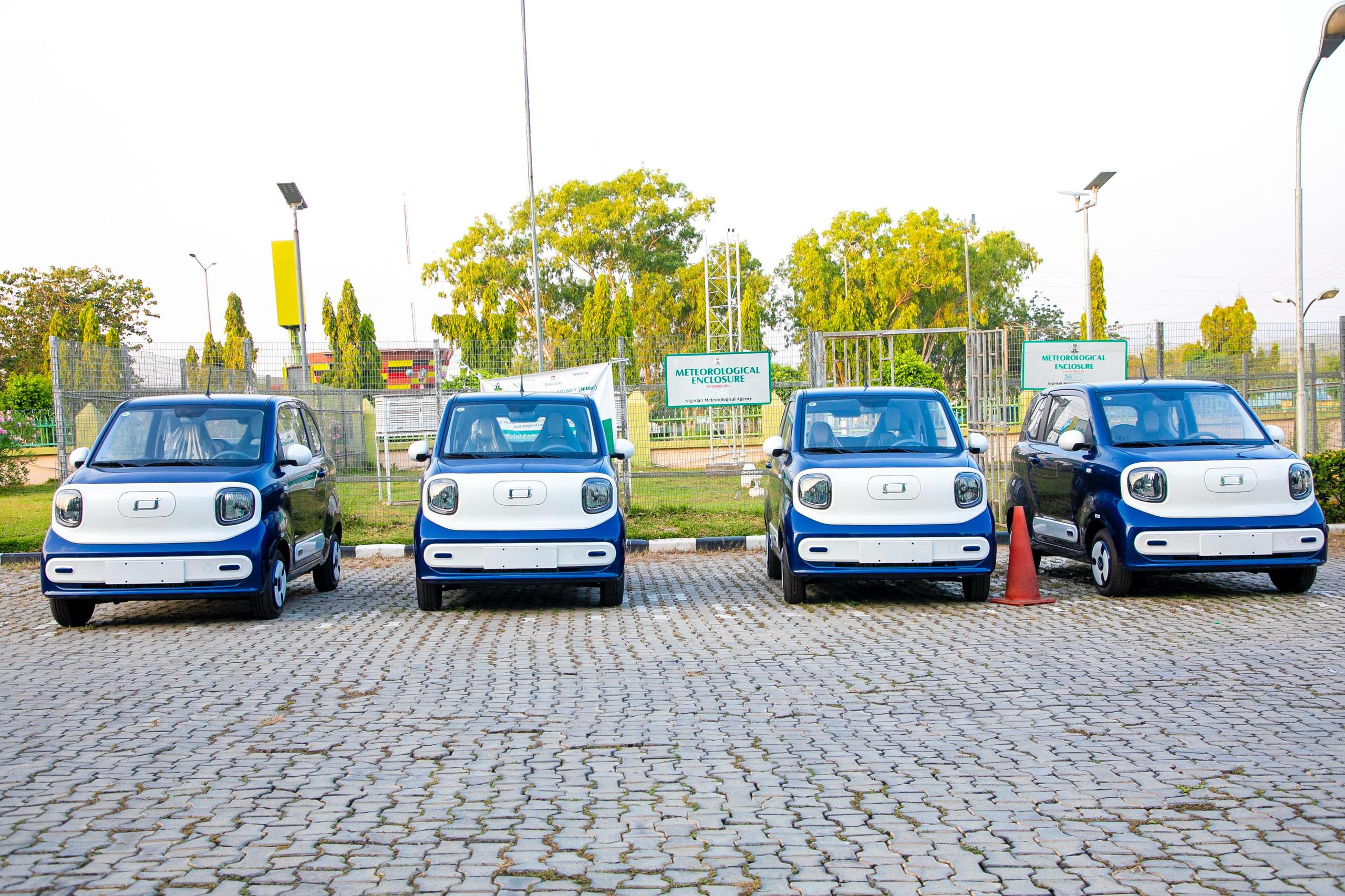
The Nigerian Meteorological Agency (NiMet) has commenced the deployment of electric vehicles (EVs) for airside operations across Nigeria’s five major international airports – Lagos, Abuja, Kano, Port Harcourt and Enugu – marking a pioneering transition to cleaner energy within the nation’s aviation sector.
This is the first time electric vehicles will be used for such operations within Nigeria’s aviation industry.
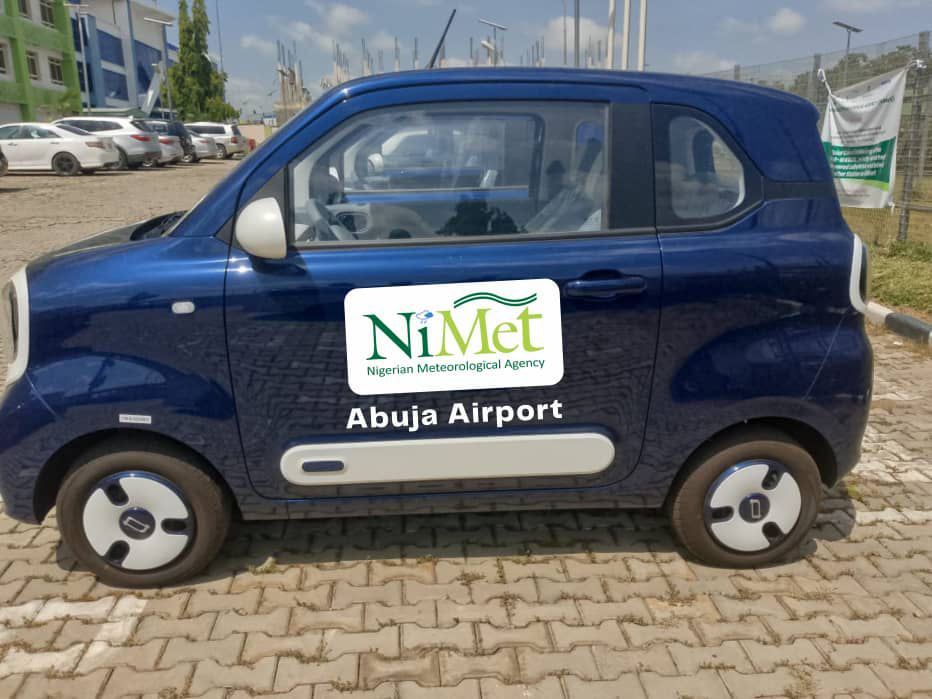
According to the agency, this strategic deployment is not only a climate-conscious intervention but a practical modernisation step to enhance operational efficiency, reduce running costs, and boost service delivery.
NiMet noted that the initiative directly aligns with President Bola Ahmed Tinubu’s Renewed Hope Agenda, which places strong emphasis on energy transition, climate resilience, and the gradual replacement of fossil fuel dependence with cleaner alternatives.
Each of the airports will also be equipped with dedicated charging stations to ensure seamless operation, with the vehicles designed to cover up to 200 kilometres on a single charge.
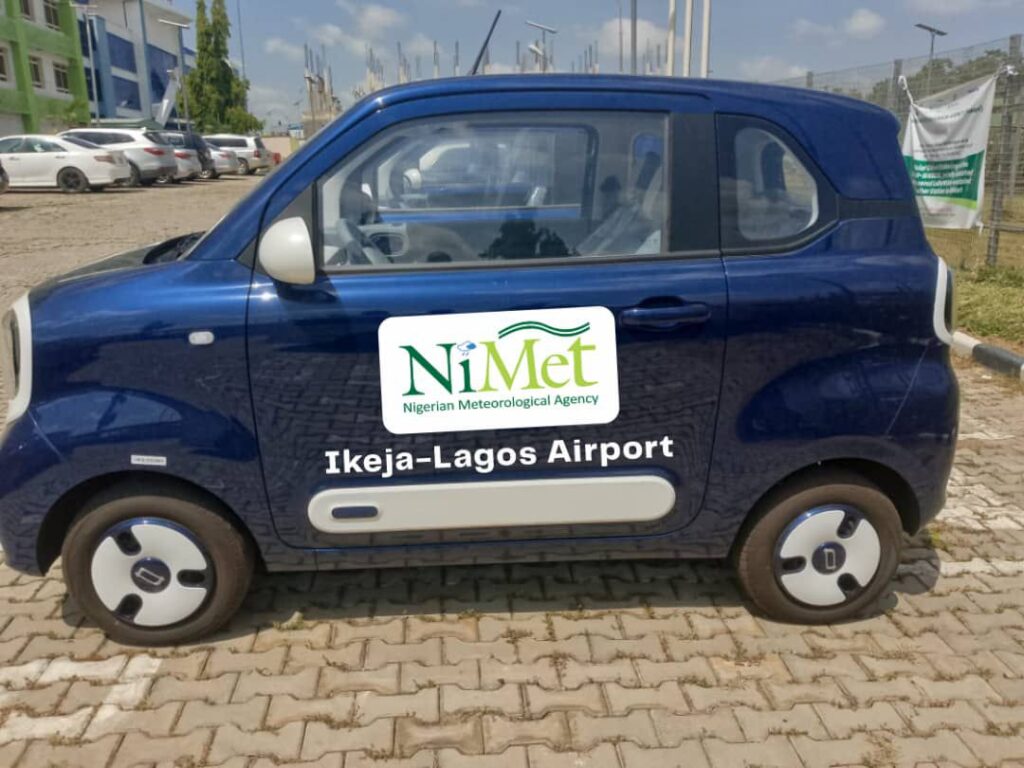
Speaking on the deployment, the Director General/Chief Executive Officer of NiMet, Professor Charles Anosike, described the initiative as a landmark investment in innovation and sustainability.
He said the transition to EV utilisation is expected to deliver multiple wins across operational, environmental, and cost-performance metrics.
“Electric vehicles offer zero emissions, are cheaper to maintain, quieter to operate and more energy-efficient. We are prioritising sustainability in a way that directly improves our service delivery while protecting our environment,” he said.
NiMet also explained that the deployment will help strengthen and streamline airside logistics – enabling the agency to move meteorological personnel and equipment more rapidly and reliably within the airport environment, without the exposure to fuel price volatility or supply delays which can hinder operations.
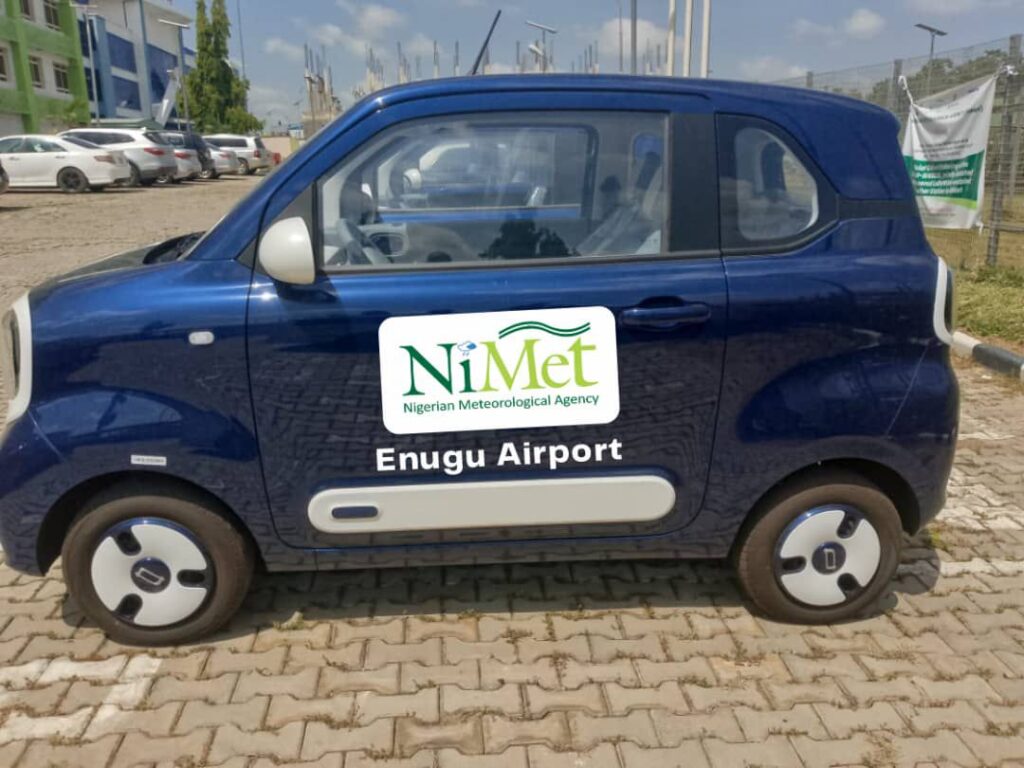
Industry observers note that the move is a notable milestone towards achieving Nigeria’s carbon credit objectives, and a strong demonstration of the capacity of government agencies to lead in domestic implementation of climate-friendly technologies.
NiMet said its leadership is committed to more sustainable transformations as part of a long-term strategy to position the agency as a driver of green growth, particularly in aviation meteorology and climate intelligence.
Over the past year, NiMet has intensified efforts to modernise its services, with the introduction of more digital tools for weather forecasting, stronger climate modelling capabilities, and innovative partnerships within the aviation ecosystem.
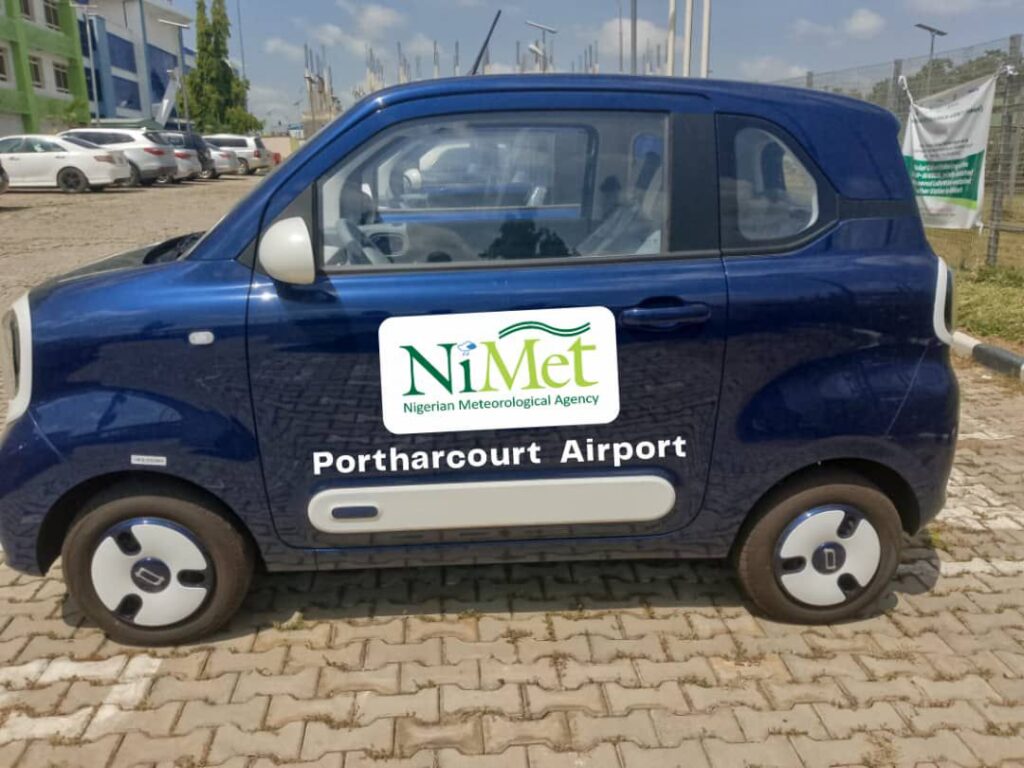
The agency said the EV deployment is one more step in ensuring Nigeria’s meteorological services are globally competitive while contributing meaningfully to emission reduction targets.
Under Professor Anosike, NiMet has consistently highlighted that sustainable energy choices are now a core pillar of aviation efficiency, safety management, and long-term operational cost control – and the agency intends to remain at the forefront of that shift.







